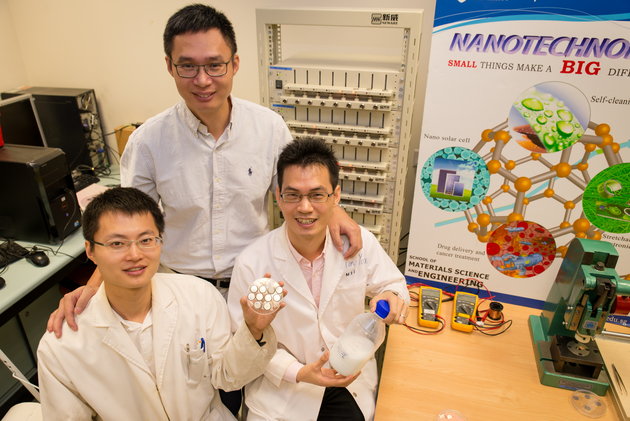New Battery Charges to 70% in 2 Mins, Lasts 20 Years
Consumers and manufacturers of tech have two major problems:
- The hardware becomes outdated the moment we buy it, for the consumers, and the increasing competition urges faster development of new tech instead of upgrading the existing hardware, for manufacturers.
- Battery life. This one is what most often makes people sell devices that are otherwise functional, and the tech industry has been literally stagnating in this area. This particular problem has been keeping the environmentally clean electric cars from becoming a viable option for consumers.
We have previously reported about several researches in the area - StorDot's next-gen battery showcased at Microsoft Think Next Conference in April, and a study at Stanford of Interconnected Hollow Carbon Nanospheres for stable lithium anodes. Here is another research that is already gaining traction in the tech industry, with patent pending and funding being raised for building a full scale prototype. Scientists at the Nanyang Technological University of Singapore have successfully built a battery that can be charged up to 70% of its capacity in as little as 2 minutes.
Moreover, their battery will last 20 years. The NTU battery has a critical advantage over the other studies because it slightly changes the production line of the good old lithium ion battery, and hence is a low-cost deviation from the current production of batteries. Second, its new ingredient is titanium dioxode nanotubes, which are produced from a widespread element found in soil in great abundance. It is used in sun screen lotions and food additives, and can be easily blended into nanotubes, which make for the incredible longevity and fast recharge span of their battery.
(Clockwise from top) NTU Assoc Prof Chen Xiaodong with research fellow Tang Yuxin and PhD student Deng Jiyang
Image: NTU
The team at NTU has been praised by Professor Rachid Yazami, the co-inventor of the lithium ion battery we use now, and he says it is the next big thing in the field. The team is now working on the organizational part of producing a prototype, namely patenting and fundraising. Associate Professor Chen Xiaodong, the inventor, says it might take up to two years before the next generation batteries hit the market. Even so, the research sounds fantastic, and has the potential to revolutionize tech industry, urging mobile device manufacturers produce hardware that does not become obsolete in a year or two. The new battery will also make electric vehicles relevant, and we may finally start saving the planet.
What do you think of the new scientific breakthrough? Share your thoughts in the comments below!
Source: NTU.

